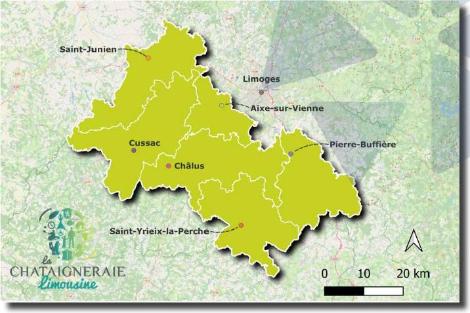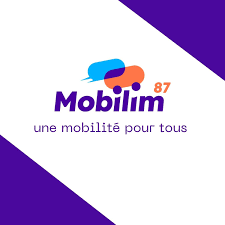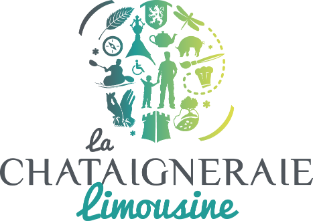A cross-disciplinary approach to employment and mobility in the Limousin Chataigneraie region
January 2023
Association Nationale des Pôles territoriaux et des Pays (ANPP - Territoires de projet)
Plateforme Mobilité 87 offers a range of services for people who have no means of transport to help them integrate into society and the workplace. The Châtaigneraie Limousine Federation (4 communities of communes, covering 44 communes and 50,380 inhabitants) is located in the south of the Haute-Vienne department, in a rural area where getting around requires a car. As part of the Plateforme mobilité 87, La Châtaigneraie Limousine has decided to offer low-cost vehicle hire (scooters, cars) to people looking for work or training who have no means of transport. In addition to this, it provides users with referrals to a mobility adviser to identify the most appropriate solutions and implement them in mobility workshops or practical and rewarding training courses (highway code, driving licence).
To download : enquete-mobilite-1.pdf (1.9 MiB)

Mobility has been a key theme in the work of the Limousin Chataigneraie Federation since it was set up in the 1990s. Since then, it has been closely linked to employment issues in the region. In fact, the problems in this area are identified in the context of integration projects through economic activity. The beneficiaries of these initiatives have problems getting around. In addition to the distance to the job, they are also physically far from where they work. To remedy this, scooters are deployed. Today, bicycles and cars are also made available to people on integration programmes. Since its creation, the Federation’s remit has expanded. It is currently carrying out a mobility study on behalf of the four EPCIs that make up the Federation, and has also carried out a mobility diagnosis that is being used as a basis for strategy and action by mobility players in the region. As such, the Federation is a stakeholder in the operational contract for the mobility basin. Sylvie TUYERAS, Vice-President of the Haute-Vienne department, pointed out the specific nature of the issue of mobility in rural areas. In addition to structural difficulties, such as the lack of infrastructure, there are many other obstacles. Childcare and domestic work, which are mainly the responsibility of women, contribute to the complexity of situations where people are not forced to move. There are also fears. Projecting oneself outside one’s familiar, everyday space, distrust of carpooling with strangers, knowledge of the area… A multidimensional approach reveals the obstacles that need to be addressed to enable everyone to access and move around the area as easily as possible.
The Haute-Vienne mobility platform: MOBILIM 87

This is how the issue of solidarity-based mobility came to the fore in the 1990s. At that time, four organisations were operating in the département, including a community driving school, a cycle school and a community workshop. Today, these initiatives form part of the solidarity-based mobility platform, which is designed to remove obstacles and provide solutions for local residents.
The specific configuration of this platform, which brings together various local players such as the Département, other member associations, Limoges Métropole, Pôle Emploi and the European Social Fund (ESF), shows that local cooperation is essential and enables projects to be devised on a catchment area scale. The platform enables people in precarious situations to access training, work placements or jobs. The work is carried out at departmental level, while the COPIL brings together the stakeholders mentioned above. The Haute-Vienne Department is the lead department for socio-professional integration, in particular through the funding of the Revenu de Solidarité Active (Active Solidarity Income), and directly funds the four associations that make up the Platform. In 2022, the département invested more than €80,000 of its own funds and, as an intermediary body managing a global grant from the European Social Fund, allocated an ESF React-EU envelope of €412,000 to the members of the platform. The MOBILIM 87 platform covers the whole of the département. Cooperation between the project’s various partners means that we can build on each other’s strengths, such as the PETR, which has expertise and in-depth knowledge of the area in which it operates. Rural councillors are involved in several of the structures on the steering committee, which means that needs can be defined as closely as possible to the demands of the public, and that the different levels of intervention (metropolis, department, PETR) can be brought into line with each other.
Raising awareness so that local players know about the schemes
Raising awareness is a vital part of this initiative to create a platform for mutually supportive mobility. Reaching out to beneficiaries is the first challenge. Leaflets have been published, meetings to present the services offered by the platform are organised on a regular basis, and Cap’Emploi advisers can raise awareness and inform local people about the possibility of accessing these mobility services. A campaign focusing on inclusive mobility is planned for one week a year, during which round tables or visits to reception sites can be organised, local elected representatives can be invited to take part and pass on information, and businesses can also be made aware of the issue, thereby reaching a wider audience. In 2021, 154 people benefited from the hire of a scooter, car or buggy. The social driving school also helped 105 beneficiaries, 57 of whom passed their driving test.
